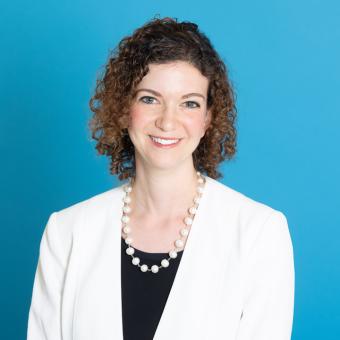Dr. Dalia Rotstein
Assistant professor, Department of Medicine
Dr. Dalia Rotstein is a neurologist at St. Michael’s Hospital and an assistant professor in the Department of Medicine, Division of Neurology at the University of Toronto. Her clinical sub-specialization is in multiple sclerosis (MS) and demyelinating diseases. She is a graduate of Harvard University, received her MD from McGill University and MPH from the Harvard School of Public Health. She completed a neurology residency at the University of Toronto and MS fellowship at Brigham and Women’s Hospital. Her research is focused on the epidemiology of MS and neuromyelitis optica (NMO), in particular the role of ethnicity, gender, and vitamin D in disease risk and disease course. She is also actively involved in international neurology education. In 2009 she founded the Neurology International Residents’ Videoconferencing Exchange (NIRVE) and now serves as the faculty mentor for this program.
Learn more about Dr. Rotstein
How did you become interested in MS research? What inspires you to continue advancing research in this field?
I first learned about MS when my grade 7 class participated in the MS Society's annual Read-a-thon. I knew I wanted to help people with neurologic disease from watching my grandfather deal with motor impairment in the aftermath of polio infection which he experienced as a young man. Early in my neurology residency I had the opportunity to attend the first Canadian endMS Conference sponsored by the MS Society and observe first-hand all of the advances that were on the horizon in MS care. I had two mentors, Dr. Paul O'Connor and Dr. Marika Hohol, who helped me nurture my research interests in my early training years in Toronto.More recently Dr. Ruth Ann Marrie, a Canadian and internationally recognized MS epidemiologist, has been an important mentor to me. I am inspired to pursue research by the great strides that have been made in MS care over the last 20 years, and the significant work that remains to enhance quality of life in people with MS.
What do you enjoy most about doing research and what are some of the challenges you face?
I enjoy the "Eureka" moment when after all of the data are collected, we analyze them and the results unfold.You feel like you have finally scaled the mountain.Sometimes you are surprised by what you find. And sometimes in that moment you already get to glimpse the next peak you have to scale.
One of the main challenges for me right now is finding the time to accomplish the projects I would like to.I divide my time between clinical and research work and both are constantly competing for hours and mental space!I am also busy as a Mom of two young children and am very fortunate to have a partner who shares equally in parenting and housework. There is always more work to be done, but I try to take it one day at a time.
Describe the importance and level of collaboration in your research?
Collaboration is essential to all of the research I perform.I rely on key team members who bring strengths in different skill sets to the table, such as multi-centre study organization and advanced statistics. For my current project funded by the MS Society, in which I am investigating risk factors for MS in immigrants to Ontario, I have a team of seven people. We meet monthly to discuss progress, new ideas, and next steps.
How important is the support from the MS Society in enabling you to conduct research?
Thanks to the support from the MS Society, we have conducted the largest study performed in any country examining the risk of MS in immigrants. This study would not have happened at all without the MS Society's support.
If you could ask one question to a person living with MS that would help you design your study, what would it be?
How much time elapsed between when you developed your first neurologic symptoms and when you sought out care from a doctor?
